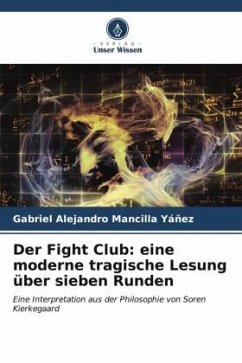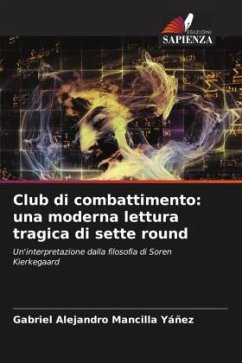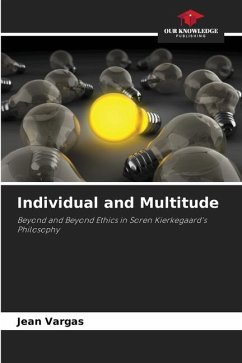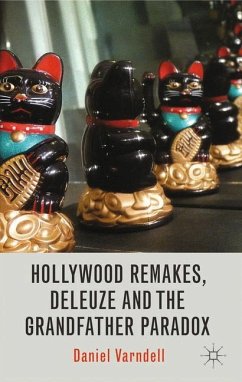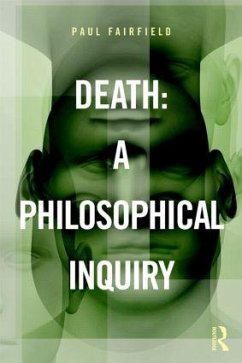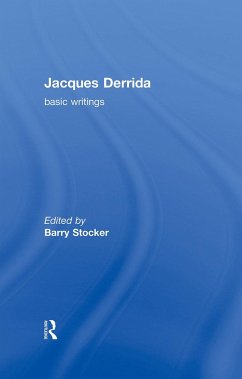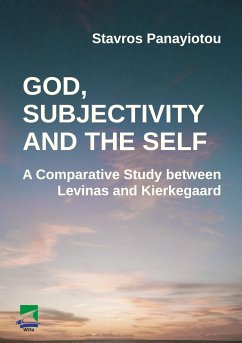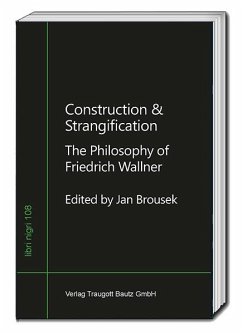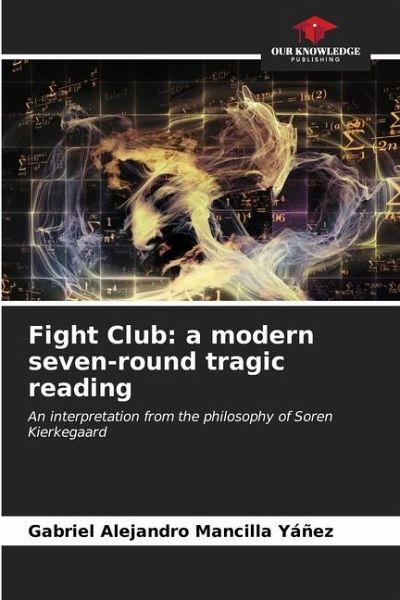
Fight Club: a modern seven-round tragic reading
An interpretation from the philosophy of Soren Kierkegaard
Versandkostenfrei!
Versandfertig in 6-10 Tagen
27,99 €
inkl. MwSt.

PAYBACK Punkte
14 °P sammeln!
This is a reflection on the film Fight Club from the perspective of Kierkegaard's philosophy. For Kierkegaard ancient guilt is transparent. Oedipus recognises his fault and accepts it, he recognises himself as guilty and feels sorrow. Modern drama is characterised by subjectivity and reflection; in it the tragic hero does not suffer, but it is through a fully singular act that he will become guilty. When Jack and Tyler discover themselves as split beings, as double beings, anguish and despair will force them to make the somersault into the void and choose between: either one or the other, Jack...
This is a reflection on the film Fight Club from the perspective of Kierkegaard's philosophy. For Kierkegaard ancient guilt is transparent. Oedipus recognises his fault and accepts it, he recognises himself as guilty and feels sorrow. Modern drama is characterised by subjectivity and reflection; in it the tragic hero does not suffer, but it is through a fully singular act that he will become guilty. When Jack and Tyler discover themselves as split beings, as double beings, anguish and despair will force them to make the somersault into the void and choose between: either one or the other, Jack or Tyler, between the aesthetic or the ethico-religious stage. The split makes it clear not only that we are dual beings, but also shows that it is the Nothing that sustains us, as we stand on the abyss.





